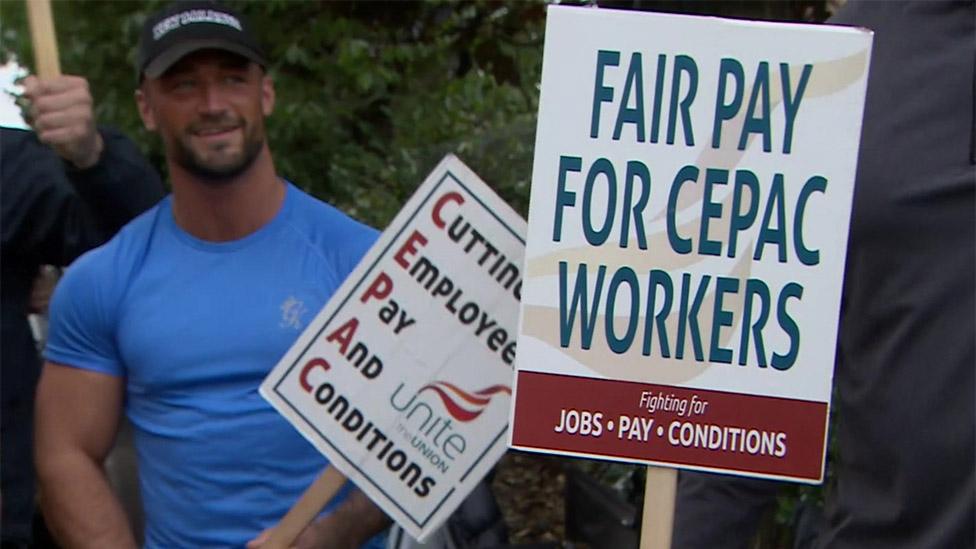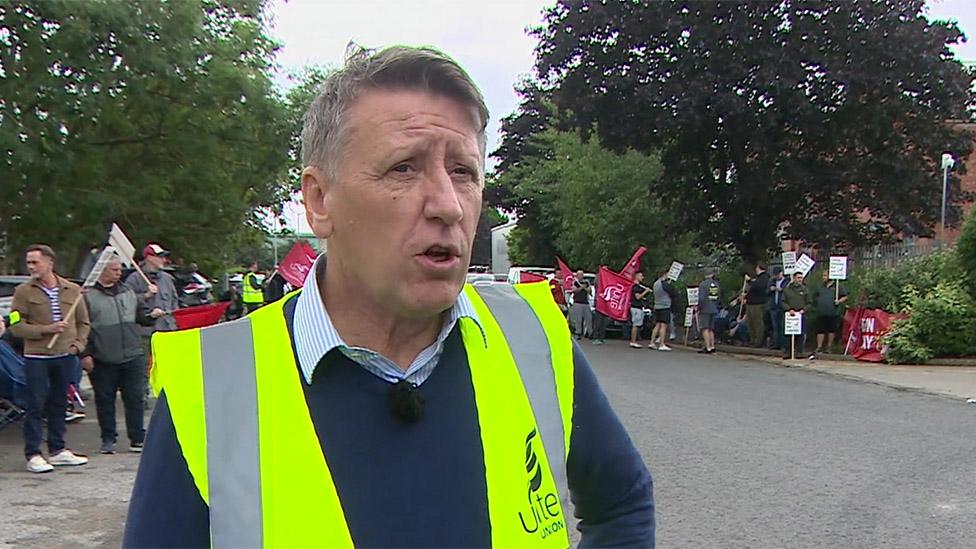Darlington Cepac packaging workers strike over terms changes
- Published

Staff are planning to strike for four weeks
Workers at a company that makes packaging for Greggs, Costa and Subway have gone on strike for four weeks.
About 55 staff at Cepac in Darlington are taking action over proposed changes to their terms and conditions.
The Unite union is fighting conditions attached to a pay rise of between 8 and 17.5% which include an increase in working hours from 37 to 40 a week.
Cepac said the union had "failed to fully and realistically engage" with the company over improved offers.
Group managing director Steve Moss described the changes as "minor" and said they were needed "to ensure future growth and investment".
Unite regional officer Pat McCourt claimed the company also wanted to change shift payments and overtime rates and introduce an "inferior" sick-pay scheme.
"We're in the worst cost-of-living crisis in living memory and it would appear that Cepac want to heap further hardship on our members, their employees, at this Darlington site," he said.

Unite regional officer Pat McCourt said the strike would affect supplies to Cepac's customers
BBC North East business correspondent Ian Reeve said an all-out strike was very unusual, even in the current climate of industrial unrest.
The union said the action was enough to disrupt the supply to customers, which includes supermarkets Asda and Morrisons.
"The food and drink industry, which is part of the customer base for Cepac, operate on a just-in-time supply chain," Mr McCourt said.
"So I'm sure that those customers will be extremely worried about the potential disruption."
Mr Moss said the industrial action was "very harmful" to Cepac and its customers but it would do "all in its power to ensure continuity of supply".
He added the financial impact of the strike, which started on Monday, was likely to affect what the company could afford to pay staff.
Union representative Daniel Wearmouth's father took part in a strike at the company in 1982 which led to the 37-hour week being introduced.
"It's 40 years' worth of historic terms and conditions changes at risk here," he said.

Follow BBC North East & Cumbria on Twitter, external, Facebook, external and Instagram, external. Send your story ideas to northeastandcumbria@bbc.co.uk, external.